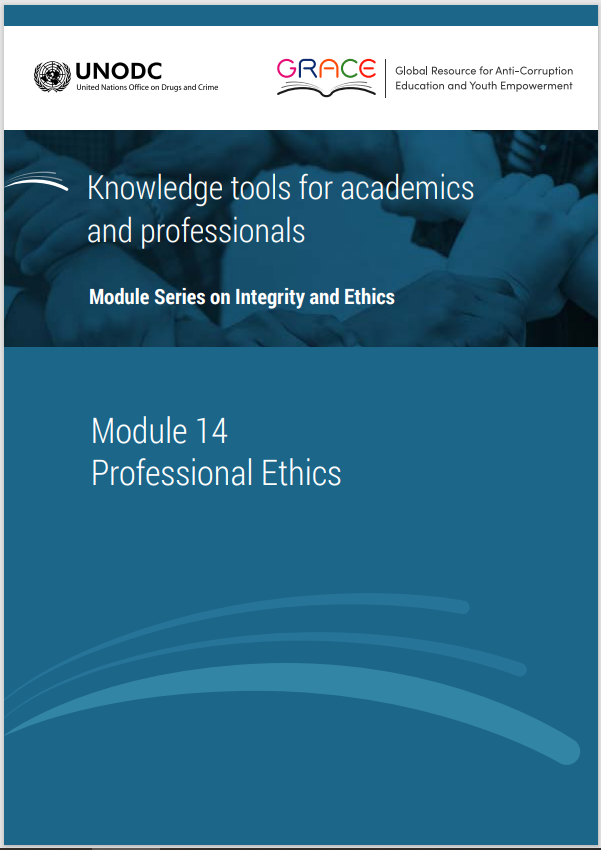This module is a resource for lecturers
Introduction
Should a journalist publish very private information about someone to inform the public about an issue? Should a lawyer withhold confidential client information that would save someone's life? This Module is designed to introduce students to the nature, practices and importance of professional ethics. The Module first helps students distinguish professional ethics from personal and theoretical ethics, and then sensitizes students to a major issue raised by professional ethics, that of potential conflicts between role morality and personal morality. The Module also familiarizes students with professional ethics codes, something students will encounter when they begin employment in a profession. Students may have already encountered such codes that apply in the university environment, such as ethics codes for lecturers. The Module will help students realize the significance of professional ethics to various entities, including institutions, individuals, and society at large. By highlighting the importance of professional ethics, the Module will help lecturers encourage students to adopt an ethical orientation in their professional lives. If the Module is taught as part of a programme aimed toward preparing students for a specific profession such as medicine, business, law, education, or journalism, the lecturer is welcome to add examples and practices from those professions.
The Module is a resource for lecturers. It provides an outline for a three-hour class but can be used for shorter or longer sessions, or extended into a full-fledged course (see: Guidelines to develop a stand-alone course).
Learning outcomes
- Clearly distinguish between personal, theoretical, and professional ethics
- Think critically about ethical issues which are encountered first hand within a career, and apply personal, theoretical, and professional ethics to vexing moral decisions within specific professions
- Grasp the challenges posed by potential conflicts between role morality and personal morality, and consider ways of resolving those conflicts
- Understand the role of professional codes of ethics, the difference between aspirational and disciplinary codes of ethics, and how professional codes may apply in their career
 Next page
Next page
 Back to top
Back to top
